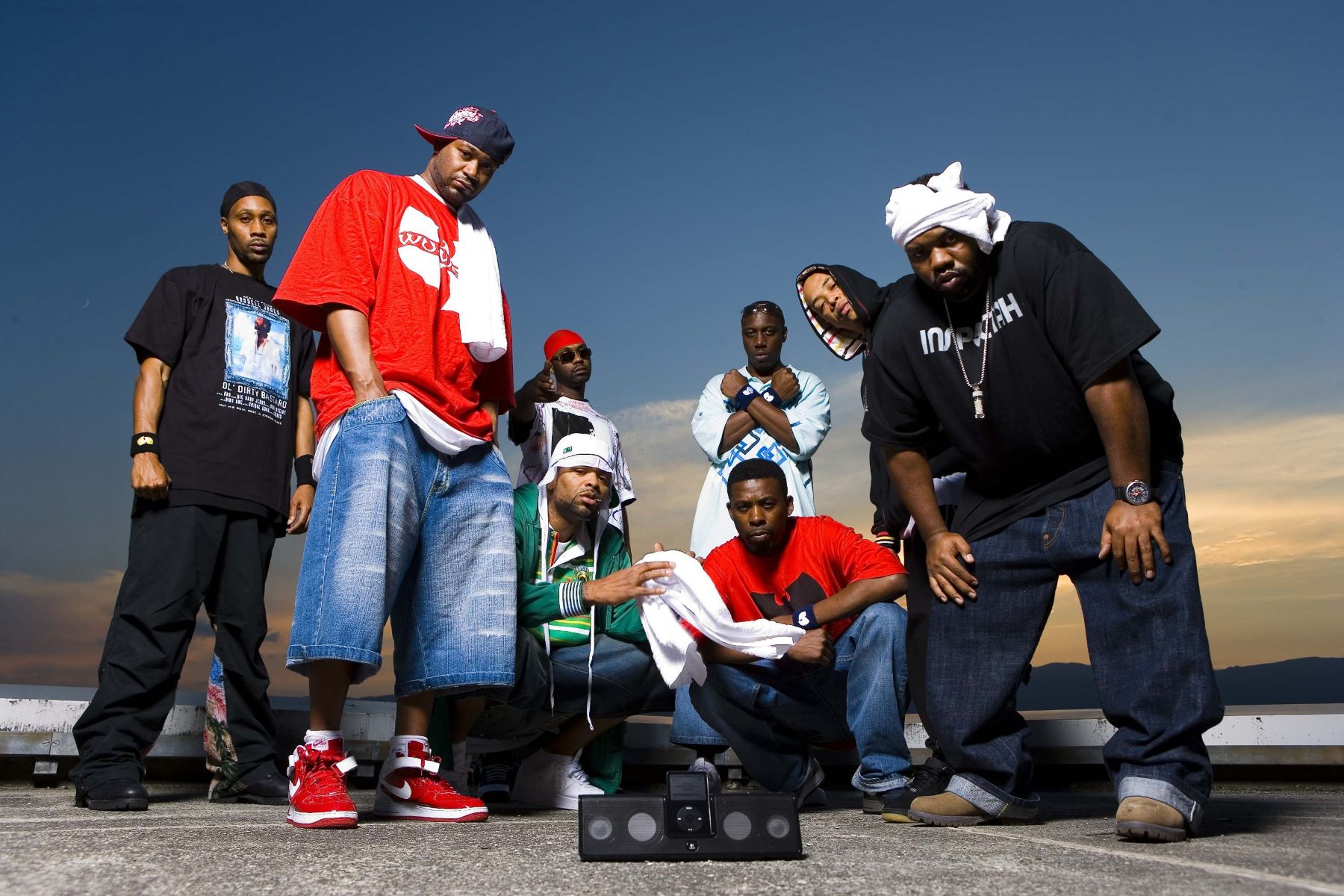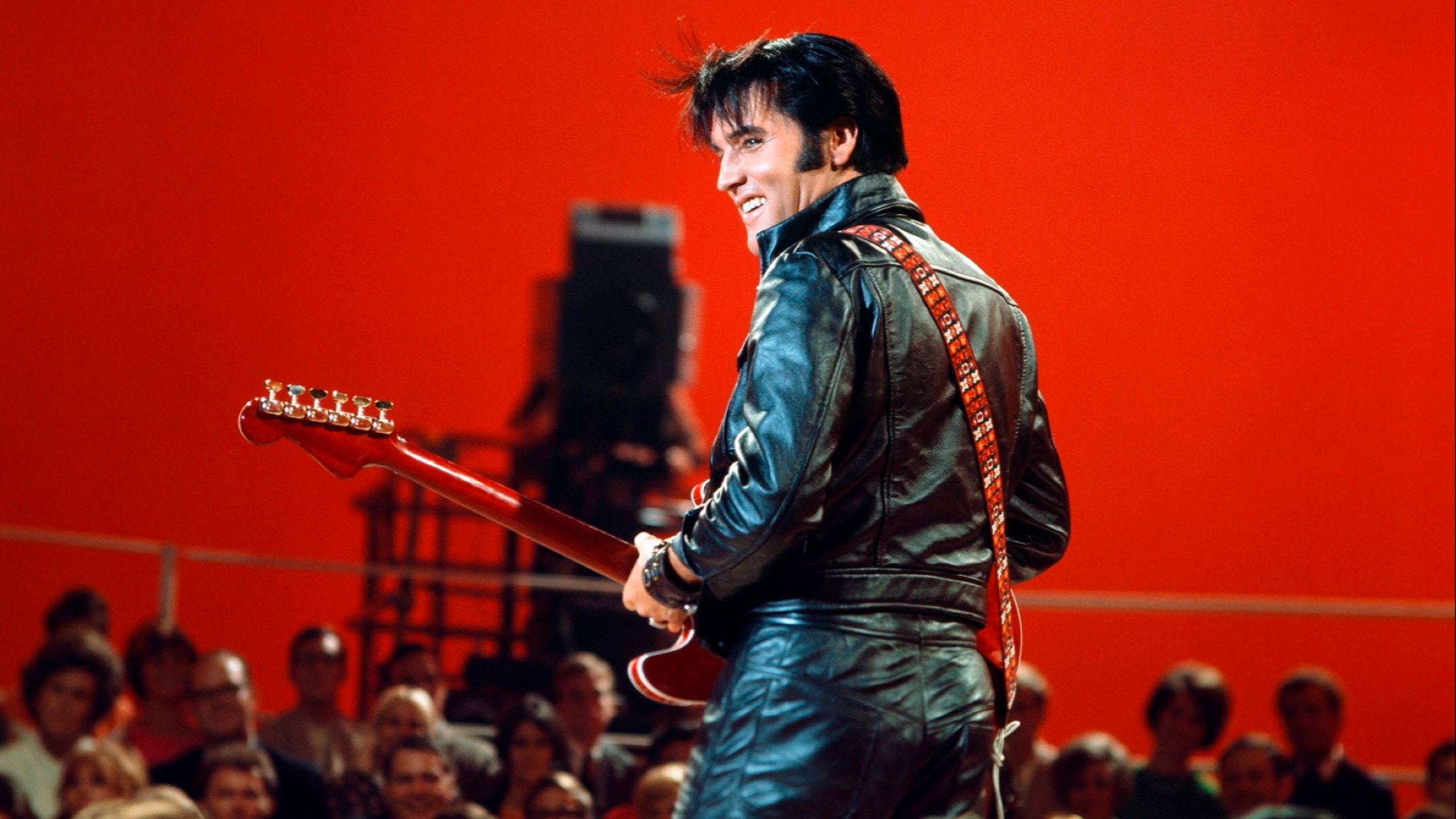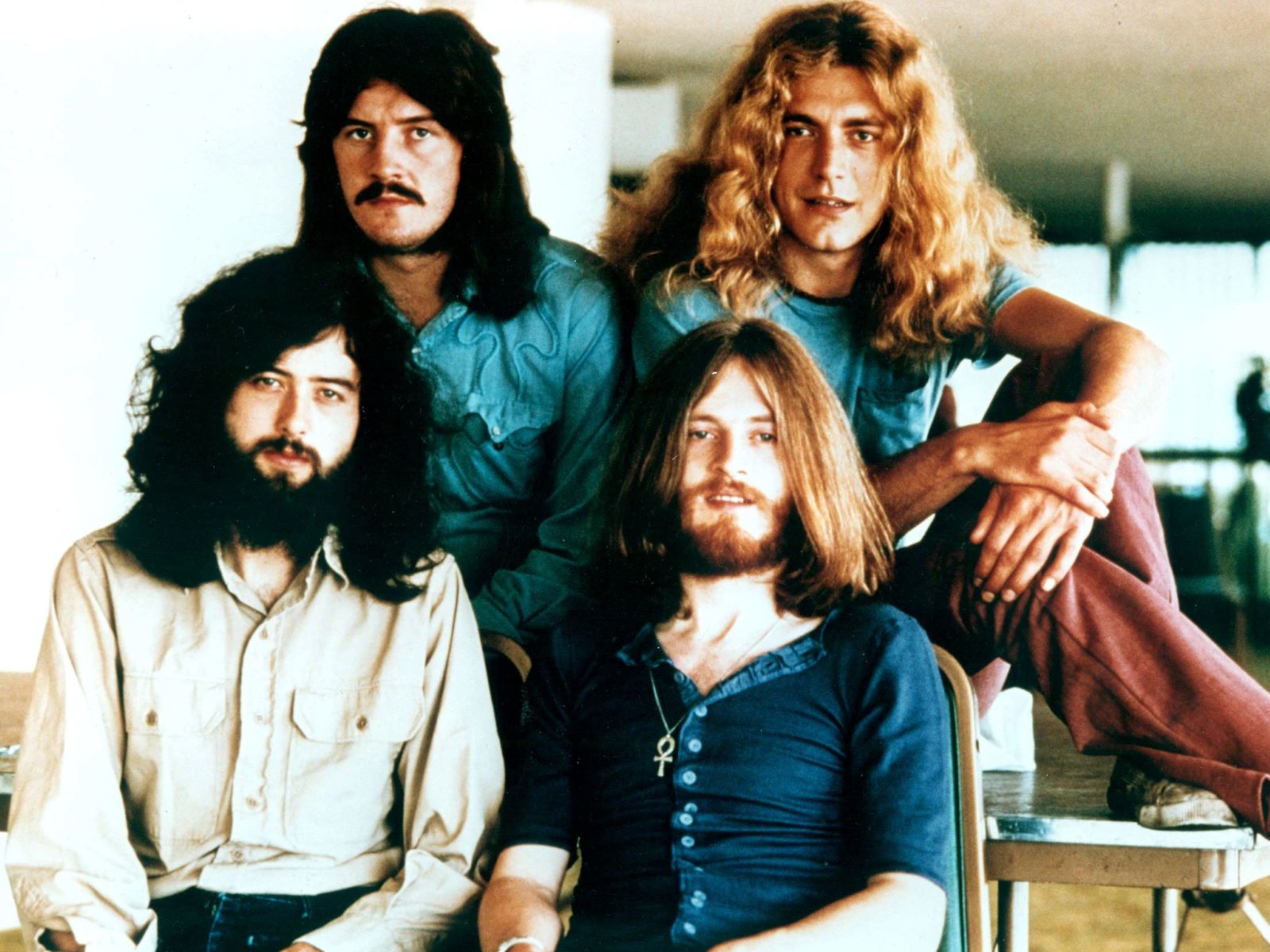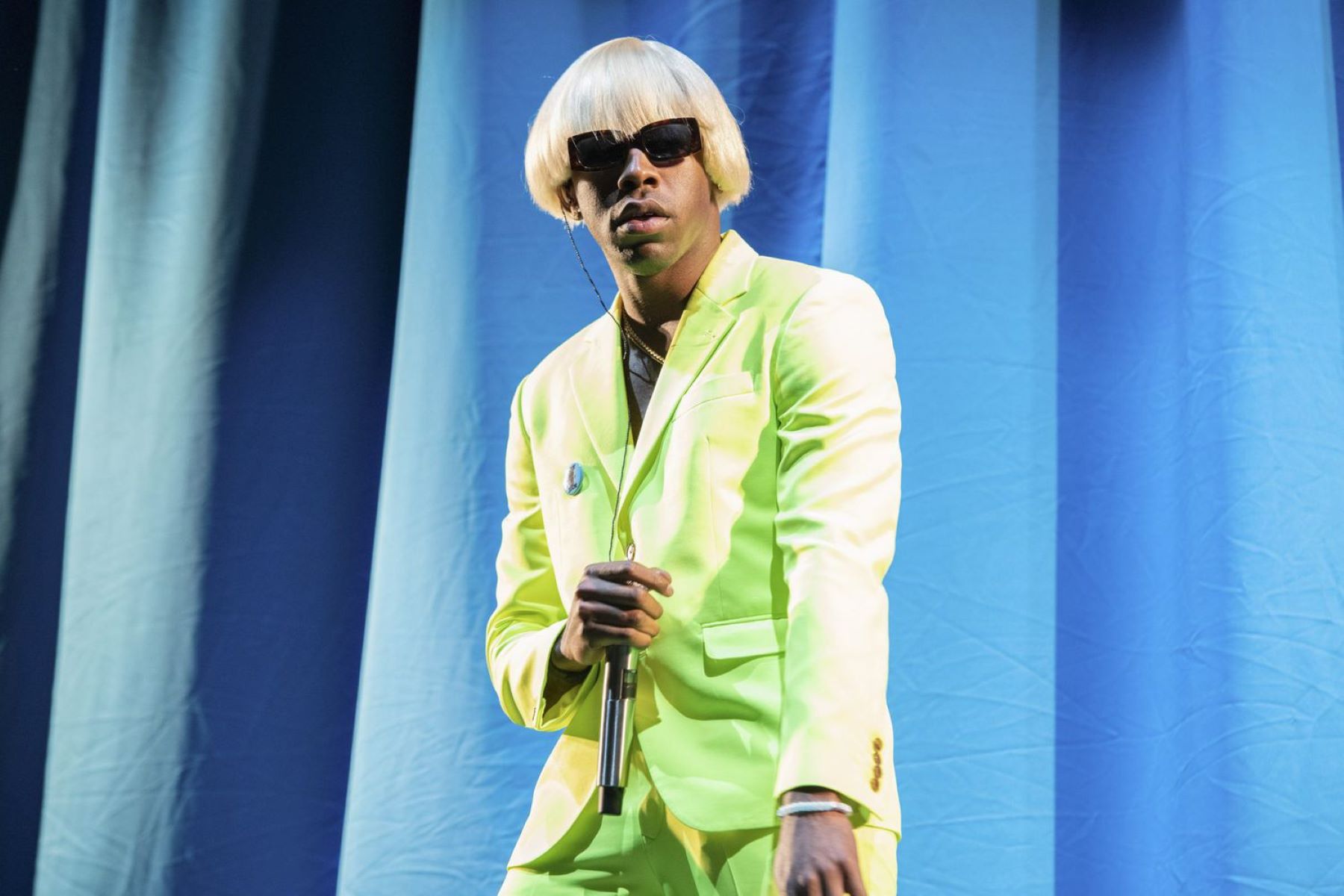Home>Production & Technology>Record Label>What Record Label Was Wu Tang On


Record Label
What Record Label Was Wu Tang On
Published: January 25, 2024
Discover which record label the Wu-Tang Clan was signed to and explore their epic journey in the music industry.
(Many of the links in this article redirect to a specific reviewed product. Your purchase of these products through affiliate links helps to generate commission for AudioLover.com, at no extra cost. Learn more)
Table of Contents
Introduction
Wu-Tang Clan, the legendary rap group hailing from Staten Island, New York, has left an indelible mark on the music industry and hip-hop culture. Known for their gritty lyrics, innovative production, and distinctive martial arts-inspired aesthetic, Wu-Tang Clan emerged in the early 1990s as pioneers of the East Coast rap scene.
Formed in 1992, the group consisted of RZA, GZA, Method Man, Raekwon, Ghostface Killah, Inspectah Deck, U-God, Masta Killa, and the late Ol’ Dirty Bastard. Each member brought their unique style and personality to the collective, creating a dynamic and influential force that would revolutionize the rap game.
From the onset, Wu-Tang Clan took a different approach to their musical endeavors. They were more than just a rap group; they aimed to establish themselves as a record label and a brand. The vision was to create a platform that would allow each member to release solo projects while maintaining the camaraderie and unity of the group.
This approach led to the formation of Wu-Tang Records, an independent label that would serve as the home base for the collective. However, before launching their own label, Wu-Tang Clan sought a record deal to gain exposure and propel their careers to new heights.
In this article, we will delve into the record label that Wu-Tang Clan signed with and how it shaped their early success. We will also explore their subsequent ventures as they transitioned to independence, leaving an enduring legacy in the music industry.
The Formation of Wu-Tang Clan
The story of Wu-Tang Clan begins in the streets of Shaolin, Staten Island, where a group of aspiring young rappers and producers joined forces to create something revolutionary. At the helm of this collective was RZA, a formidable producer and visionary leader.
RZA, with his keen ear for sampling and ability to craft unique, gritty beats, became the driving force behind Wu-Tang Clan’s sound. He gathered his cousins GZA and ODB, childhood friends Method Man and Raekwon, and fellow Staten Island natives Ghostface Killah, Inspectah Deck, U-God, and Masta Killa to form what would become one of the most impactful rap groups of all time.
Wu-Tang Clan took inspiration from martial arts films, incorporating their love for kung fu into their music, style, and even their names. They embraced the philosophy of Shaolin, adopting the moniker “Wu-Tang Clan” to emphasize their brotherhood and the strength they derived from their unity.
While each member brought their unique skills and personalities to the table, it was RZA who served as the group’s mastermind. His production style showcased a raw, unpolished aesthetic that perfectly complemented the lyrical prowess and streetwise storytelling of his fellow Clan members.
Together, they embarked on a mission to redefine hip-hop, blending sharp lyricism, gritty beats, and a distinct sense of authenticity. Their music painted a vivid picture of the realities of life in the inner city, tackling themes such as crime, poverty, and social injustice.
But it wasn’t just their music that set them apart. Wu-Tang Clan was a cultural phenomenon, with their distinctive fashion sense, logo, and martial arts symbolism becoming synonymous with their brand. They created their own language and visual identity that resonated with fans across the globe.
As Wu-Tang Clan gained recognition and built a strong following, it became clear that they were more than just a rap group. They were a movement. They wanted to establish themselves as a collective that could transcend the confines of the traditional music industry model.
With their sights set on becoming not just artists but entrepreneurs, Wu-Tang Clan embarked on a journey that would lead them to form their own record label and change the landscape of hip-hop forever.
Wu-Tang Clan’s Early Years
After the formation of Wu-Tang Clan, the group began honing their craft and building a reputation through local performances and mixtape releases. Their unique sound and undeniable talent quickly caught the attention of the music industry, sparking a bidding war among record labels eager to sign them.
Ultimately, Wu-Tang Clan decided to sign with Loud Records, a subsidiary of RCA Records. The deal provided them with the opportunity to release their debut album, “Enter the Wu-Tang (36 Chambers),” in 1993. Produced primarily by RZA, this seminal album introduced the world to the raw, unfiltered energy of Wu-Tang Clan.
“Enter the Wu-Tang (36 Chambers)” was unlike anything hip-hop had ever heard before. The album showcased the group’s individual talents while preserving the unity of their collective effort. From the gritty lyricism on tracks like “Protect Ya Neck” to the infectious hooks on songs like “C.R.E.A.M.,” the album captivated listeners and solidified Wu-Tang Clan’s place in hip-hop history.
Not only did Wu-Tang Clan establish themselves as formidable artists, but they also made a profound impact on the industry with their innovative marketing strategies. They created a buzz by releasing limited edition singles and merchandise, cultivating an air of exclusivity and desirability around their brand.
Furthermore, each member of Wu-Tang Clan began pursuing solo projects, releasing their own albums under the Wu-Tang umbrella. This move allowed them to showcase their individual artistry while maintaining the unity and support of the group. This unique approach set them apart from other rap acts at the time, demonstrating their commitment to artistic freedom and creative autonomy.
Wu-Tang Clan’s early years were marked by an explosive rise to fame and critical acclaim. Their impact on the music scene was felt far and wide, as they brought a refreshing and unapologetic rawness to hip-hop. Their success laid the foundation for what would become a lasting legacy that continues to influence and inspire artists to this day.
Enter the 36 Chambers: Signing with Loud/RCA Records
With their remarkable debut album, “Enter the Wu-Tang (36 Chambers),” Wu-Tang Clan propelled themselves to new heights and solidified their place in hip-hop history. The pivotal moment came when the group inked a deal with Loud Records, a subsidiary of RCA Records.
Signing with a major label was a significant milestone for Wu-Tang Clan. It provided them with the resources, distribution, and promotional support needed to reach a wider audience and elevate their career to a global scale. Under Loud/RCA, Wu-Tang Clan had the platform to showcase their raw talent and groundbreaking sound.
“Enter the Wu-Tang (36 Chambers)” was released in November 1993, and it immediately made a significant impact. Infused with gritty, sample-heavy beats and razor-sharp lyricism, the album struck a chord with listeners hungry for the raw energy and authenticity that Wu-Tang Clan brought to the table.
The album’s success can be attributed to the distinct production style of RZA, who crafted the majority of the tracks. His innovative use of samples from obscure sources created a unique sonic landscape, blending elements of soul, funk, and kung fu movies into a captivating musical tapestry.
Songs like “Protect Ya Neck” and “C.R.E.A.M.” became instant classics, showcasing the individual talents and personalities of the Clan members while highlighting their unity and camaraderie. The album’s timeless appeal has resulted in it being hailed as one of the greatest hip-hop albums of all time.
Not only did “Enter the Wu-Tang (36 Chambers)” receive critical acclaim, but it also found tremendous commercial success, eventually achieving platinum status. The album’s impact went beyond record sales; it solidified Wu-Tang Clan’s position as pioneers and cultural icons in the genre.
In addition to the music, Wu-Tang Clan’s unique marketing approach played a pivotal role in the success of “Enter the Wu-Tang (36 Chambers).” They released limited edition merchandise and singles, creating a sense of exclusivity and collector’s appeal. This strategy helped build anticipation and excitement around their brand, with fans eagerly seeking out the latest Wu-Tang Clan releases.
The partnership with Loud/RCA Records provided Wu-Tang Clan with a platform to launch their careers and make a lasting impact on the music industry. By signing with a major label and delivering an exceptional debut album, they set the stage for their future ventures and established themselves as one of the most influential rap groups of all time.
The Success and Legacy of Wu-Tang Clan
Wu-Tang Clan’s impact and influence on the music industry cannot be overstated. Beyond their groundbreaking sound and unique marketing strategies, the group’s success and legacy lie in their ability to transcend the boundaries of hip-hop and leave an indelible mark on popular culture.
Following the release of “Enter the Wu-Tang (36 Chambers),” the group continued to solidify their position as leaders in the rap game. They released a string of critically acclaimed albums, including “Wu-Tang Forever,” “The W,” and “Iron Flag,” each showcasing their unmatched lyricism and sonic innovation.
Wu-Tang Clan’s success was not confined to the realm of music. They expanded their influence through various ventures, including film and television. RZA, in particular, emerged as a respected producer and actor, lending his talents to projects such as “Ghost Dog: The Way of the Samurai” and “Kill Bill.”
The Clan also made waves with their fashion choices, pioneering streetwear culture and becoming style icons in their own right. Their distinct fashion sense, combined with their iconic W logo, became synonymous with Wu-Tang Clan’s brand and served as a visual representation of their impact on popular culture.
One of the most significant aspects of Wu-Tang Clan’s legacy is their influence on future generations of artists. Their unapologetic rawness, lyrical dexterity, and genre-blending sound have inspired countless musicians across various genres, shaping the landscape of contemporary music.
Furthermore, Wu-Tang Clan’s dedication to the concept of artistic autonomy and independence paved the way for future artists to take control of their creative endeavors. They showed that it was possible to succeed on their own terms and build a brand that extended beyond just music.
The group’s mantra, “Wu-Tang is forever,” continues to ring true, as they have maintained their relevancy and continued to release music even decades after their inception. Their influence can be felt in the work of artists like Kendrick Lamar, J. Cole, and Tyler, The Creator, who credit Wu-Tang Clan as a major inspiration.
Wu-Tang Clan’s impact goes far beyond record sales and chart-topping hits. They have cemented their place in history as pioneers, innovators, and cultural icons. Their influence on rap music and popular culture as a whole is immeasurable, ensuring that their legacy will endure for generations to come.
Departure from Loud/RCA Records
After enjoying substantial success under Loud/RCA Records, Wu-Tang Clan decided to part ways with the label and venture into new territories. The departure marked a significant shift in the group’s trajectory and allowed them to explore their independence and entrepreneurial spirit.
While their time with Loud/RCA Records was fruitful, the decision to leave was driven by a desire for greater artistic control and ownership of their music. Wu-Tang Clan had always sought to establish themselves as more than just a rap group; they wanted to build a legacy as entrepreneurs and innovators.
Following their departure from Loud/RCA, Wu-Tang Clan embarked on a new approach to releasing music. They embraced the concept of independent distribution, allowing them to retain creative freedom and control over their projects. This move aligned with their vision of artistic autonomy and allowed them to fully manifest their unique musical and business acumen.
Wu-Tang Clan started their own label, Wu-Tang Records, which served as a platform for the group’s individual members to release solo projects. This initiative allowed each member to explore their own creative paths while maintaining the foundation of unity and support that defined Wu-Tang Clan.
The departure from a major label did not deter the success of the group. In fact, Wu-Tang Clan’s subsequent independent releases, such as the critically acclaimed “Wu-Tang Forever” and “The W,” demonstrated their ability to not only maintain their artistic integrity but also achieve commercial success on their own terms.
Furthermore, Wu-Tang Clan continued to innovate in the digital landscape. In 2014, they made headlines with the release of their one-of-a-kind album, “Once Upon a Time in Shaolin.” This album was sold as a unique art piece and limited to just one copy. The approach sparked discussions about the value of music in the digital age and solidified Wu-Tang Clan’s reputation as trailblazers.
The departure from Loud/RCA Records allowed Wu-Tang Clan to spread their wings creatively and expand their entrepreneurial endeavors. It showcased their determination to break free from industry norms and build their own path to success.
While Wu-Tang Clan’s departure from a major label may have come as a surprise to some, it was a calculated move that embodied their forward-thinking mindset and commitment to carving their own legacy in the music industry.
Wu-Tang Clan’s Independent Ventures
With their departure from Loud/RCA Records, Wu-Tang Clan embarked on a new chapter as independent artists and entrepreneurs. Embracing their creative independence, the group ventured into various ventures that expanded their influence beyond traditional music releases.
One of the most iconic projects to emerge from Wu-Tang Clan’s independent ventures is the creation of the innovative album “Once Upon a Time in Shaolin.” This album, produced by RZA, was released in 2014 as a limited edition single-copy art piece. It was encased in a handcrafted silver and nickel box, making it a highly coveted collector’s item. The unique approach sparked conversations about the value of music and the intersection of art and commerce.
Additionally, Wu-Tang Clan embraced the digital landscape by exploring online distribution models. They released music directly to their fans through digital platforms, cutting out the middleman and maintaining direct control over their catalog. This allowed them to release music more frequently and connect with their audience on a global scale.
Wu-Tang Clan also expanded their brand beyond music through various entrepreneurial ventures. They launched Wu-Tang Clan merchandise, which became highly sought after by fans around the world. The iconic “W” logo adorned clothing, accessories, and even collaborations with popular brands, solidifying their status as style icons.
Individually, the members of Wu-Tang Clan pursued their own solo projects, further showcasing their diverse talents. RZA continued to produce music, act in films, and explore his passion for martial arts. Method Man and Ghostface Killah achieved success as solo artists, releasing critically acclaimed albums and collaborating with industry heavyweights.
Furthermore, Wu-Tang Clan also had a lasting impact on the film and television industry. RZA directed and starred in the martial arts film “The Man with the Iron Fists” and served as a producer and music supervisor for several movies and TV shows. Their music has been featured in soundtracks and their distinct style of storytelling has influenced many filmmakers.
Wu-Tang Clan’s independent ventures showcased their entrepreneurial spirit, pushing boundaries and redefining what it means to be successful in the music industry. They demonstrated that artists can take control of their own careers, maintain artistic integrity, and build a lasting legacy beyond traditional record labels.
Through their various ventures, Wu-Tang Clan has left an indelible mark on popular culture. Their influence extends far beyond their music, as they have become ambassadors of creativity, entrepreneurship, and innovation. Their ability to adapt to a changing industry landscape and continuously reinvent themselves solidifies their legendary status and ensures their legacy will continue for years to come.
Conclusion
Throughout their illustrious career, Wu-Tang Clan has proven to be much more than a rap group. They established themselves as entrepreneurs, innovators, and cultural icons who have left an indelible mark on the music industry and popular culture as a whole.
From their formation in the gritty streets of Staten Island to their departure from Loud/RCA Records and subsequent independent ventures, Wu-Tang Clan has showcased their unwavering commitment to artistic integrity and creative autonomy. They have continuously pushed boundaries, redefining the possibilities for success in the music industry.
Wu-Tang Clan’s impact on hip-hop cannot be overstated. Their groundbreaking sound, raw lyricism, and distinctive style have inspired generations of artists across various genres. They have become a blueprint for artistic excellence, fostering a legacy that continues to influence and shape the landscape of music today.
Moreover, Wu-Tang Clan’s evolution into entrepreneurs and visionaries has set them apart from their peers. Their independent ventures, such as the unique album release of “Once Upon a Time in Shaolin” and their foray into fashion and film, have solidified their status as trailblazers and trendsetters.
By establishing their own label, Wu-Tang Records, and pursuing individual solo projects, each member of the Clan has been able to showcase their talents while maintaining the essence of unity that defines Wu-Tang Clan. This unified yet independent approach has been instrumental in shaping their success and allowing their artistry to flourish.
As Wu-Tang Clan continues to evolve and create, their impact remains enduring. They have left an indelible mark on popular culture, inspiring not only musicians but also artists, entrepreneurs, and thinkers from all walks of life. Their legacy extends beyond record sales and accolades, touching the very essence of what it means to be a creative force in a rapidly changing world.
In conclusion, Wu-Tang Clan’s journey from their formation to their present-day endeavors is a testament to the power of artistic vision, entrepreneurship, and resilience. Their contribution to music and popular culture is immeasurable, and their influence will continue to reverberate for generations to come. Wu-Tang Clan truly represents the epitome of artistic integrity, unity, and limitless creativity.











